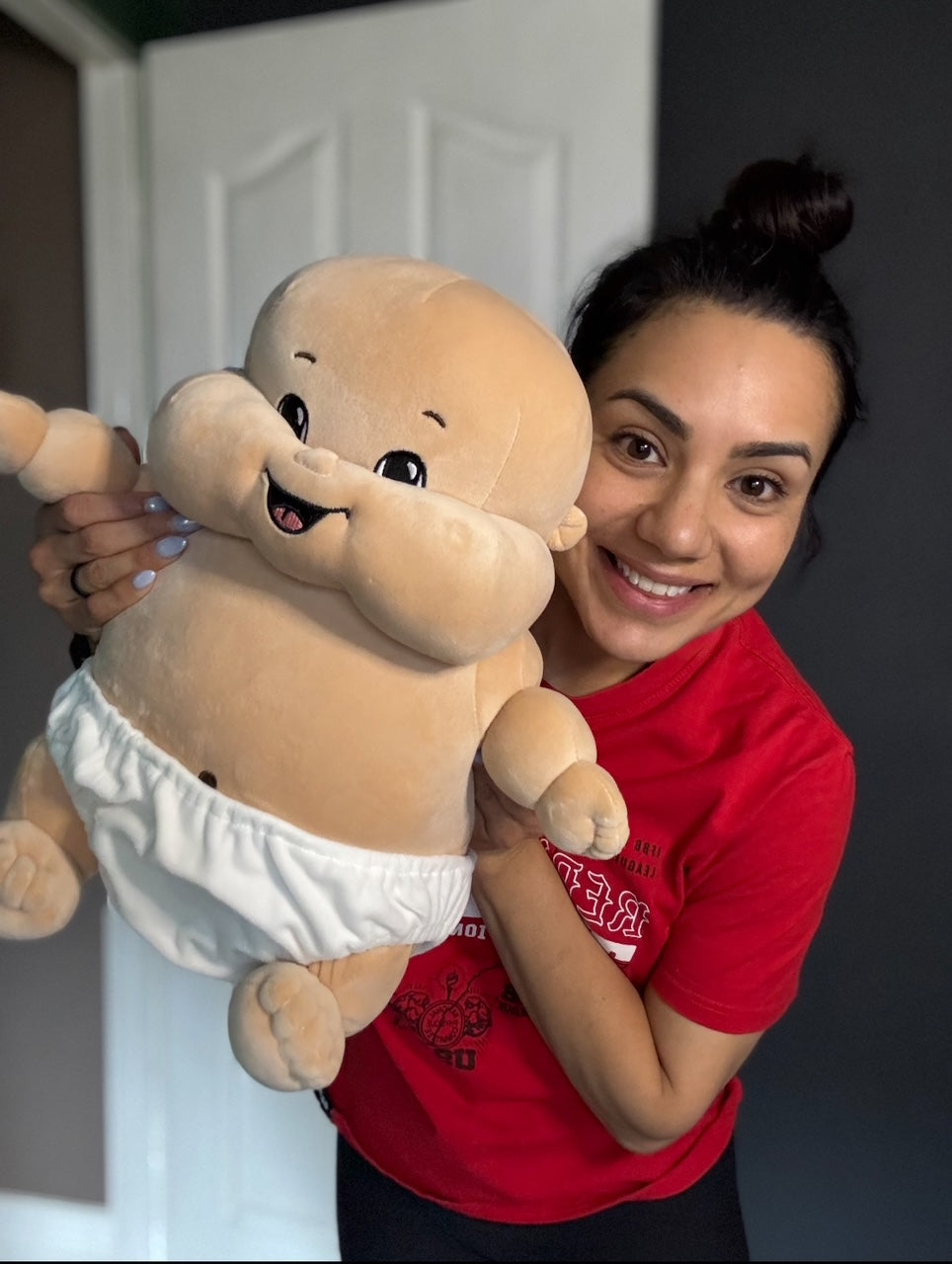
Dough Babies are being used as Therapy Dolls in doctors' offices!
Therapy dolls, often used in physical therapy clinics, can provide a range of benefits for both patients and therapists.
Therapy dolls offer a multifaceted approach to physical therapy, addressing emotional, social, and physical needs. By creating a more interactive and supportive environment, these dolls can enhance the overall effectiveness of therapy sessions, leading to better patient outcomes.
-
Emotional Support
Therapy dolls can serve as a comforting presence for patients, particularly children or those with cognitive impairments. They can help reduce anxiety and create a sense of security during therapy sessions.
-
Encouraging Communication
These dolls can facilitate communication, especially for individuals who may struggle to express their feelings verbally. Patients might find it easier to talk about their experiences or emotions while engaging with a doll.
-
Promoting Engagement
Therapy dolls can make physical activities more engaging. By incorporating dolls into exercises, therapists can motivate patients to participate more actively, making therapy sessions feel less daunting and more enjoyable.
-
Development of Fine Motor Skills
Interacting with therapy dolls can help patients practice and improve their fine motor skills. Activities such as dressing, feeding, or caring for the doll can be woven into therapy routines to enhance dexterity and coordination.
-
Role-Playing Scenarios
Dolls can be used in role-playing exercises to simulate real-life situations. This method can help patients develop coping strategies, social skills, and emotional regulation techniques in a safe environment.
-
Building Empathy and Social Skills
For individuals with social or emotional challenges, therapy dolls can help foster empathy and improve social interactions. Patients can learn to care for and relate to the doll, which can translate into improved relationships with others.
-
Customizable Experiences
Therapy dolls can be tailored to meet the specific needs of individual patients. They can be dressed, accessorized, or modified to reflect the patient's preferences or cultural background, enhancing the therapeutic experience.
-
Facilitating Family Involvement
Families can participate in the therapy process by engaging with the dolls, making it easier for them to understand their loved ones' challenges and support them in their healing journey.

